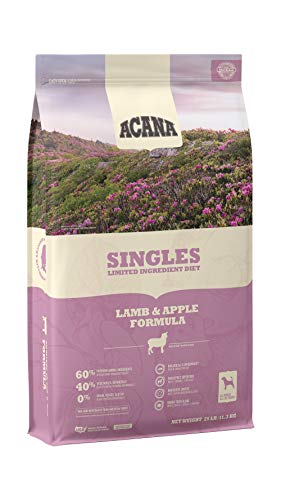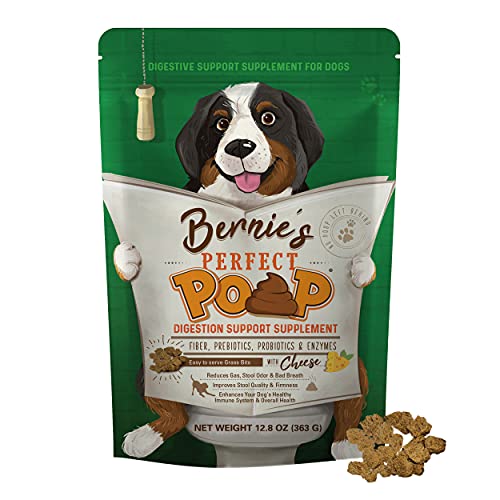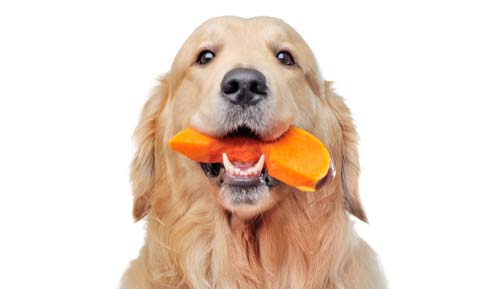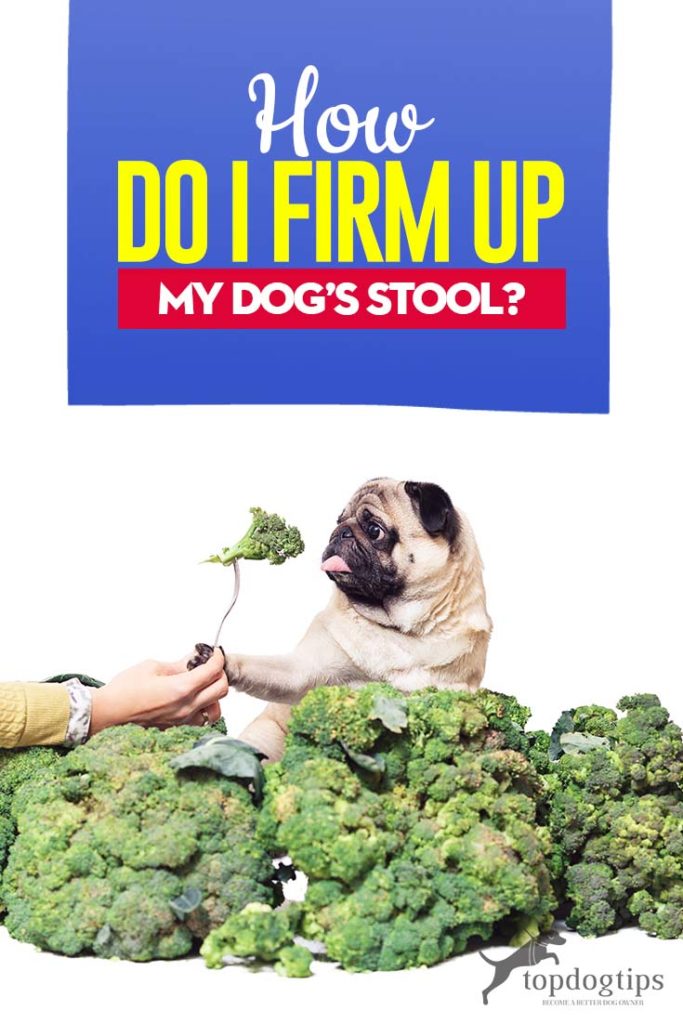
Table of Contents
New or not, dog owners like you might pop this question in your head:
“How do I firm up my dog's stool?”
Soft stool in your dogs is not an unusual problem. It can happen anytime.
But if it's frequently occurring in your pups, then listen up.
It could simply be a reaction to their sudden change of diet.
Or it could mean you're giving them the unideal one.
Either way, I scoured the internet for tips and science-backed information, so you don't have to.
And in today's article, I've included vital topics about this problem, including the following:
But first, let's talk about why this phenomenon is possible in your dogs, shall we?
Why Does My Dog Have Soft Stools?
Your dog can have soft stools due to an improper diet.
That said, they need a diet that contains a sufficient amount of digestible protein and fiber to have regular, normal bowel movements.
“Does this refer to the normal protein and fiber-rich foods I know?”
Yes.
And you can actually find them in your kitchen like the following:
- Eggs
- Meat
- Apples
- Cheese
- Pumpkin
- Green beans
- Peanut butter
- Sweet potatoes
However, not all protein and fiber sources are digestible.
And by that, we mean there are types of nutrients that your dog's body can't absorb upon digestion.
So, choosing the appropriate food for your pup is vital.
Commercially, most dog food brands and other supplements already include digestible protein and fiber in their formula.
But you can give your dogs some fresh produce as occasional treats, too.
Note: Dogs with kidney problems shouldn't consume high-protein foods in excess.
These foods don't cause kidney problems, though. So, it's best to consult your vet about this.
Relevant Read: 11 Best High-Fiber Dog Food Brands
Difference Between Soft Stools and Diarrhea in Dogs
I know it can get tricky (and gross…) sometimes.
But as a dog owner myself, there are only a few things to look out for whether your pooch has diarrhea or soft stools.
Soft stools have shape and can be picked up using a scooper.
Meanwhile, diarrhea looks more fluid-like, without any form — something that you can't scoop out easily.
Warning: Diarrhea can indicate a health problem in your dogs.
If it lasts more than a couple of days, seek a vet immediately.
But unlike diarrhea, soft stools are rarely a health concern in your dogs unless it lasts more than a few days.
When this happens, pay your vet a visit for a proper evaluation.
8 Ways to Firm Up Your Dog's Stool
Disclosure: We may earn affiliate commissions at no cost to you from the links on this page. This did not affect our assessment of products. Read more here and find full disclosure here.
1. Go for Protein and Fiber-Rich Diet
In canine health, proteins are considered your furry friend's lifeline.
Without protein, your dogs will have a hard time surviving.
And experts from the National Research Council claim that:
“Dietary protein contains 10 specific amino acids that dogs cannot make on their own, known as essential amino acids…”
These essential amino acids are responsible for your dog's optimal growth, development, and health, that's according to a study.
The same goes for fiber.
But the truth is, not all fibers are created equal.
That being said, they're broken down into 2 types, namely: digestible and indigestible fiber.
Difference Between Digestible and Indigestible Fiber
Between the two, studies approve that the presence of digestible fibers in your pet's diet works wonders on their overall health.
And as Dr. Sam Kovac of Southern Cross Vet explains:
“Digestible fiber refers to the fiber that can be broken down into simple molecules that can be eaten by bacteria in the pet’s gut.”
This function helps regulate your dog's blood sugar concentrations and enhances its immune system, too.
Meanwhile, indigestible fibers are known to decrease caloric intake, especially in overweight dogs.
But nutrition-wise, these fibers contribute little to no help at all.
Comparisons aside, the major roles of fiber in your pup's health include the following:
- Keeps the colon healthy
- Regulates bowel movement
- Maintains healthy gut balance
And when it comes to dog food, traces of protein and fiber must be one of the top criteria for you to consider.
Moreover, lowering fat content will also help firm up a dog's stool.
Choose white meats like chicken, turkey, or even white fish — they contain less fat than red meats.
Other ingredients in quality dog foods that will help to firm up a dog's stool include rice, oats, barley, and wheat.
Commercially, there are dog food brands to firm up your dog's stool through a set of ingredients.
To help you get started, you can try some of these brands:
| Preview | Product | Rating | |
|---|---|---|---|

|
"I and love and you" Nude Superfood Dry Dog Food -... | 1,235 Reviews | Check Price |

|
ACANA Singles Limited Ingredient Dry Dog Food,... | 186 Reviews | Check Price |

|
Fromm Adult Gold Premium Dry Dog Food - Chicken... | 1,026 Reviews | Check Price |

|
Blue Buffalo Life Protection Formula Natural Adult... | 36,986 Reviews | Check Price |
2. Avoid Fatty Foods
When your dog's stool is unusually soft, you must avoid feeding it high-fat food, especially those that become rancid easily.
If you're cooking for your pooch at home, note that foods fried in oil — particularly in palm oil — are hard to digest.
What's worse, it forms a layer in your dog’s intestine that can lead to watery or soft stools.
3. Try a Lactose-Free Diet
Other than puppies feeding from their mom's milk, most young and adult dogs can't digest other milk formulas.
That's because undigested milk sugars draw water from your dog’s intestines, resulting in soft stools.
As this study confirms:
“In most adult humans and other mammals, large amounts of lactose are no longer tolerated, and lactose ingestion may lead to gastrointestinal symptoms.”
Even some puppies on a milk replacer formula have trouble breaking down lactose into sugar.
So, be sure to choose a lactose-free replacement if you see that your puppy is passing soft stools.
4. Add Dry Food Into Their Diet
If you mostly give wet foods to your dog, you can add or mix in some dry kibble, too.
“Does wet food causes diarrhea or soft stools in dogs?”
Normally, no.
But, some instances trigger diarrhea and soft stools in your dogs, which are the following:
- Unsanitized food bowls
- Using unclean or contaminated water
- Letting the mixture soaked for too long
- An abrupt change in diet — from dry to wet food
Plus, higher moisture content can sometimes lead to wetter and bulkier stools.
So, it's best to reduce water or add some high-quality kibble to your wet food formula.
The perfect wet food for your dogs should be gravy-like in consistency.
Note: Introduce this diet gradually to your dog for 5-6 days.
This way, your dog’s gut will have time to adapt to it preventing an upset stomach.
5. Add Extra Fiber to Their Diet
Fiber soaks up fluid and helps firm up soft stools in dogs, or even diarrhea.
It's also a bulking agent.
So, your dog feels full for longer periods and allows you to decrease its calorie intake when they're overweight.
However, you need to be careful with adding extra fiber to your pooch's diet.
That's because too much fiber can upset their stomachs, too.
For commercial foods, choose brands that have a crude fiber content of around 10%.
You can also add fiber through natural foods, such as oats, pumpkin, or wheat bran in your pet's meals.
Tip: One teaspoon per 20 pounds of your dog’s body weight is a good start.
You can increase this little by little once your dog gets used to it.
Another thing you can do is to give them raw fruit or vegetables to increase fiber intake.
Or make homemade meals for your pups.
Containing no preservatives and other ingredients we can't even pronounce, homemade meals are totally a great option.
You can try this recipe or this one.
Finally, fiber-infused pet supplements work great, too.
You can either feed it directly to your dogs or as a garnish on their meal.
That being said, here are some of the best fiber supplements for dogs you can try:
| Preview | Product | Rating | |
|---|---|---|---|

|
Perfect Poop Digestion & General Health Supplement... | 17,343 Reviews | Check Price |

|
Diggin’ Your Dog Firm Up Pumpkin for Dogs &... | 6,216 Reviews | Check Price |

|
Glandex Anal Gland Soft Chew Treats with Pumpkin... | 37,635 Reviews | Check Price |
6. Give Your Dog Some Probiotics
In general, humans and animals have billions of good bacteria in their gut.
And these play a huge role in your dog's health, especially the following functions:
- Maintain good digestion
- Enhance the immune system
- Helps synthesize vitamins B12 and K
But if your dog has an overgrowth of bad bacteria or pathogens in their gut, this results in soft stools or diarrhea.
In this case, supplementing your dogs with the best probiotic brands can regulate the imbalance and improve your dog’s digestion and bowel movement.
Note: Dogs don’t have the same gut fauna as humans, so giving them non-pet probiotics may cause diarrhea.
It's best to use probiotics formulated for dogs, such as Purina's Fortiflora ($30.99) or Zesty Paws ($29.97).
These probiotics usually come in capsules.
Dosage: One capsule per day for a week or two should be enough to restore the balance in your dog’s gut.
If that doesn't help, or you're not sure about the dosage, consult your vet to ensure optimal results.
7. Provide Fresh Water for Your Dog
Make sure that your pooch has fresh water available at all times.
Dogs that have soft stools lose more water and are at risk of dehydration.
So, they need to have easy access to fresh drinking water to replace lost fluids.
Also, keep your dog’s water bowl clean to avoid bacteria buildup.
Stainless steel bowls are less bacteria-ridden than plastic ones.
8. Keep Your Dog Stress-Free
Like humans, your dogs can experience digestive problems when they are stressed out.
If your dog has soft stools often and you're positive it's not a dietary issue, then it could be psychological.
That said, a large number of things can cause stress in dogs, such as:
- Changes in their routine
- Moving into a new house
- Constant visits from guests
- Meeting new pets or family members
Furthermore, avoid doing stressful activities with your dog for a while.
For example, if your pooch finds baths stressful, delay them for a few days to see if a dog's stool firms up.
If stress is causing their stool quality, a bland homemade diet like chicken and white rice can be helpful.
Or this could be a cue for a quick vet visit.
How Do I Firm Up My Dog's Stool: Before You Go…
Soft stools in dogs are quite common and usually not a serious health concern.
But when this happens, feed them a high-quality diet that contains enough meat and fiber.
Plus, be sure to avoid fatty foods to firm up your dog’s stool.
You can also increase a dog's fiber intake through homemade meals by adding veggies or fruits.
Aside from fresh produce, commercial products like fiber supplements work wonders, too.
Furthermore, probiotics for dogs are another helpful dietary addition that can firm up their stool.
And most importantly, ensure that your dog always has access to fresh water.
Meanwhile, another culprit to soft stools in dogs is stress.
Assess your pup's current living conditions and environmental factors that affect it emotionally (i.e. new pets at home, moving from one place to another).
If none of these solutions help and your dog continues to pass soft stools, take it to the vet for a proper diagnosis.
Related Articles:
- 15 Reasons for Blood in Dog's Stool
- 7 Tips On How To Firm Up Dog Stool
- The Best Dog Food for Dogs With Diarrhea and Loose Stools















